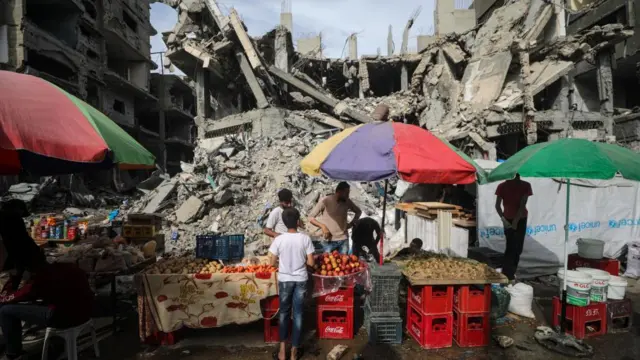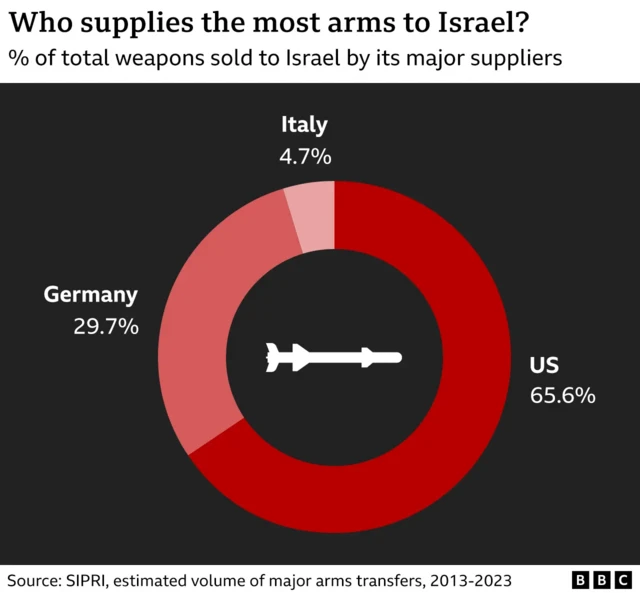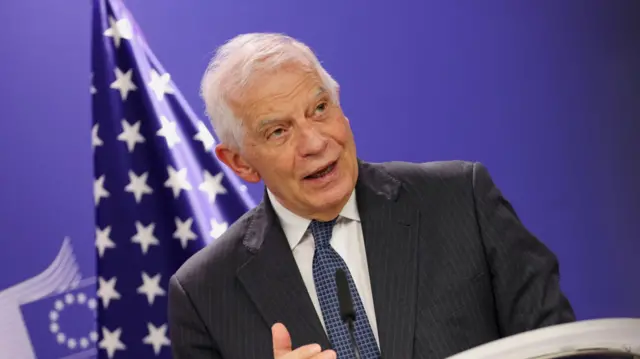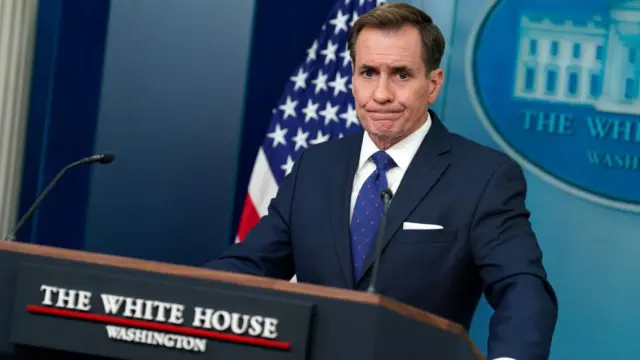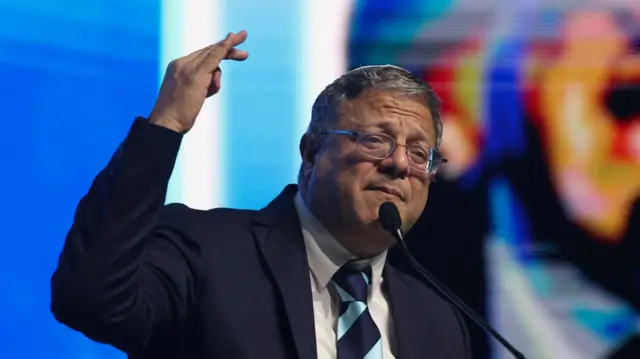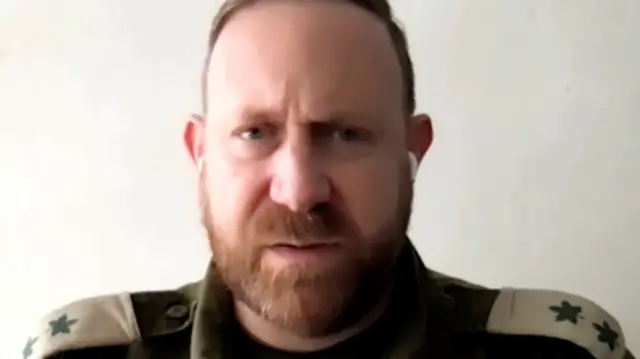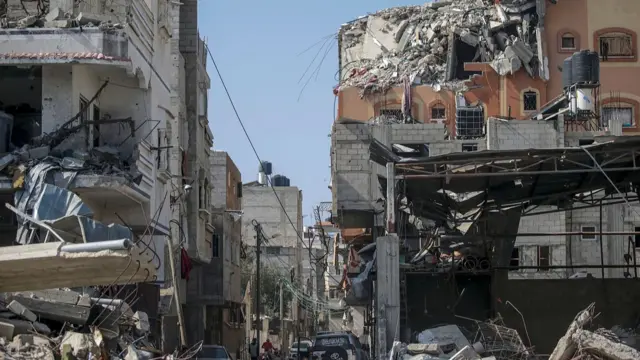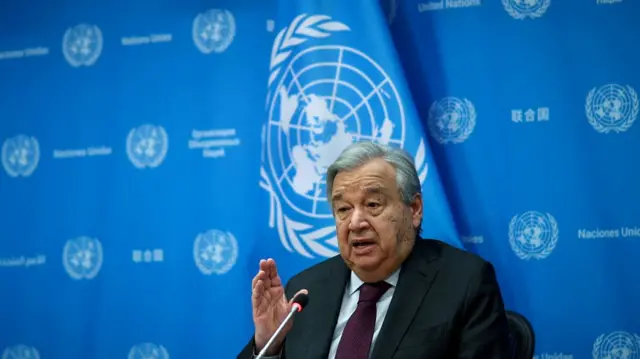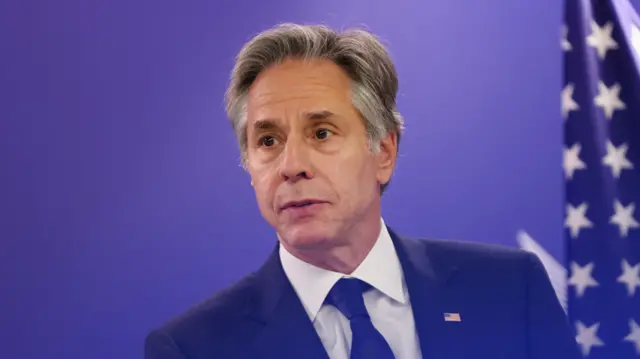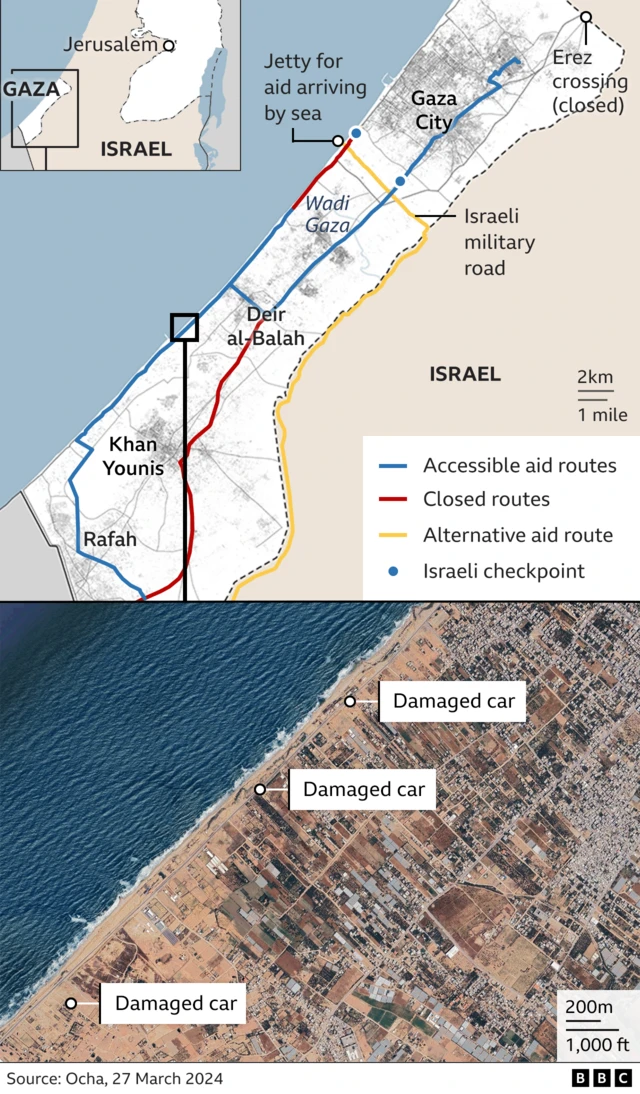
If Israel is breaking rules of war, that is a war crimepublished at 19:01 BST 5 April 2024
 Jeremy Bowen
Jeremy Bowen
International Editor
Critics of Israel’s conduct in this war - and there are many - say that the aid convoy attack was not an isolated incident. That in fact it's the result of a systematic disregard for the lives of anyone other than Israeli soldiers in Gaza.
The Israelis are trying to say that this was a very unfortunate incident that should never have happened. They are saying senior officers have been disciplined and that this is now dealt with.
But that doesn’t deal with the wider question of whether there is a real problem with the way the Israeli army fights, which has resulted in deaths of more than 32,000 Palestinians, the majority of whom are women and children; more than 200 aid workers; and something like 100 Palestinian journalists who’ve been trying to cover the story there.
And the question of whether or not there is something systematically wrong with the way the Israeli military acts in Gaza, in terms of respect for international humanitarian law. Because if it is proven they are systematically breaking the rules of war, then that is a war crime.
